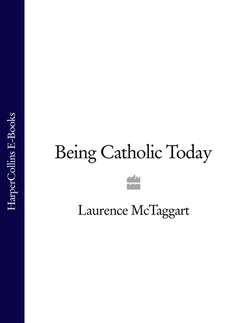Читать книгу Being Catholic Today - Laurence McTaggart - Страница 19
The ‘s’ word
ОглавлениеIf you really know God, you know that he is God, not The Godfather. St Benedict, in his Rule for Monks, describes coming to know God as a growth from servile fear to the love of sons and daughters, the perfect love that casts out fear. For him, it is a growth in humility. This virtue has two parts. The first is the recognition of weakness and sin within us. The second is the realization that goodness and beauty is there too. Each part is useless without the other. On its own, the first is false modesty, or unctuous hypocrisy. The second without the first is conceit, a comforting internal deafness to what we do not want to know.
Both parts together involve living in the truth, the exclusion of false gloom or over-optimism. It is also the only way to understand how Jesus’ preaching of the gospel of repentance is good news to us.
If we say we have no sin in us, we are deceiving ourselves and refusing to admit the truth; but if we acknowledge our sins, then God who is faithful and just will forgive our sins and purify us from everything that is wrong.
1 John 1:8–9
For a Christian, talk of sin is immediately the acknowledgement of grace and forgiveness because ‘what proves that God loves us is that Christ died for us while we were still sinners’ (Romans 5:8). On the other hand, talk of God’s love makes no sense without at least some sense of our darker side, the things in us that he wants to heal and change so that he can truly share with us love for love. Hence, fear of punishment cannot be the fundamental motivation for a mature Christian. But there is another way of taking Jesus’ words about an eternal sin with immediate approval. If you look around the world, there is plenty going on that should surely be unforgivable. It does not seem right that the likes of Hitler or Stalin should jump any queues into heaven ahead of, say, those millions who were killed trying to stop the evils perpetrated by them. If God waves a wand or puts a blind over his eyes with truly wicked people, and sees Christ instead of them and so lets them into eternal bliss, then this makes his love for you and me, who struggle on and do as little harm as we can, rather unreal. Salvation becomes like a debased coinage, without value because it has no cost. It must be correct, then, that a person can put him or herself beyond the possibility of forgiveness. It is like a relationship fractured to the degree that ‘I’m sorry’ can no longer heal.
